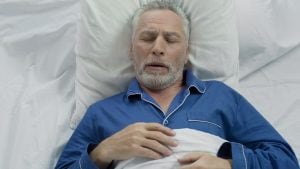Most Common Reasons to See a Sleep Apnea Specialist
 Sleep apnea is a common, frustrating condition that can develop for a number of reasons. Unfortunately, it's rarely something you can handle yourself. Sleep apnea has two forms, obstructive and central, and both have short- and long-term affects on your health and quality of life. Luckily a sleep apnea specialist can identify the best treatment for you and help you start getting the rest you need.
Sleep apnea is a common, frustrating condition that can develop for a number of reasons. Unfortunately, it's rarely something you can handle yourself. Sleep apnea has two forms, obstructive and central, and both have short- and long-term affects on your health and quality of life. Luckily a sleep apnea specialist can identify the best treatment for you and help you start getting the rest you need.
What are the Symptoms of Sleep Apnea?
When you have sleep apnea - you stop breathing for short periods of time over the course of the night and when you start to run out of oxygen, you end up waking up a bit. Because these episodes of waking up can happen several times per hour, you end up not getting a lot of sleep.
Common symptoms that you might have after a night of apneic episodes include:
- Dry mouth and throat
- Sore throat
- Headache
- Excessive drowsiness
- Moodiness and irritability
- Brain fog and an inability to concentrate
The side effects of apnea can extend past the morning. You can have trouble concentrating on work and your long-term performance take a dive. If your bed partner can't sleep because of your snoring, your relationship can find itself on the rocks. And even if your partner sleeps in another room, your relationship can still suffer because of your moodiness and other behavior.
Your health can also suffer long-term. Your blood pressure, risk for heart disease, and risk for diabetes all go up due to the sleep deprivation that sleep apnea can cause.
One thing to keep in mind is that you don't have to have all of the symptoms to have sleep apnea. For example, in central sleep apnea, your brain does not send the right signals to your muscles to tell you to breathe while asleep, and snoring is often not a factor.
What are Risk Factors of Sleep Apnea?
If you snore, you don't necessarily have sleep apnea. However, snoring is a major risk factor; even if you didn't have apnea when you were younger and snoring, you are at greater risk of developing obstructive sleep apnea as you get older. You're also more at risk of developing obstructive sleep apnea if you gain a lot of weight or are already obese, if you sleep with your head at a strange angle, or if you smoke, drink, or use sedating medication.
One other issue to watch out for is if you have a family history or personal risk factors for stroke or heart trouble. Central sleep apnea can occur even in healthy people for undetermined reasons, but the development of central sleep apnea can also be a sign that something is wrong in terms of a developing stroke or heart disease. If you feel terrible when you wake up and think you might have sleep apnea, but you don't think there is anything causing an obstruction, contact a sleep apnea specialist immediately.
When Should I See a Doctor for Sleep Apnea?
If you have any of the symptoms of sleep apnea, even just a general sense of not sleeping well, you may need to contact a sleep apnea specialist. You'll go through an evaluation and sleep test, and the specialist will discuss your options. You may need to use a continuous positive airway pressure (CPAP) mask, or there could be an alternative treatment that eases the apnea permanently.
Don't let these symptoms continue to get worse and affect the quality of your life. Contact the specialists at eos dental sleep to find a solution and let you enjoy your sleep time.
